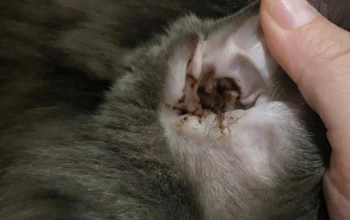Ever been confused about whether it’s okay to use salt water for your cat? You’re not alone. Many pet parents are curious whether this simple home remedy is actually helpful or potentially harmful. Well, you’re in luck, because in this article, we’re diving deep into the benefits of salt water for cats and how to use it safely.
Yes, salt water for cats can offer several surprising health perks, from boosting hydration to fighting infections. But before you reach for that salt shaker, let’s get the full scoop on how this natural solution works.
Table of Contents:
Why Salt Water Can Be Beneficial for Cats
Salt water, especially when prepared properly in safe concentrations, contains essential electrolytes that can support a cat’s health. While it’s definitely not meant to be a daily drink or replacement for clean water, salt water has its moments, especially in first aid and mild home treatment situations.
1. Supports Electrolyte Balance
Salt water contains electrolytes like sodium and chloride, which help maintain proper hydration and fluid balance in cats.
Electrolytes are critical for normal body functions, including heart rhythms, nerve signals, and muscle movement. If your cat is dehydrated, maybe from vomiting, diarrhea, or hot weather, adding a vet-approved oral rehydration solution (yes, one with salt!) can help restore what’s lost. But remember: always talk to your vet first before offering electrolyte-infused water.
2. Helps Fight Infections
One of salt water’s best-kept secrets? Its natural antiseptic properties. That’s right, when used topically, a salt water rinse can help eliminate bacteria and prevent minor infections.
Salt water can be used to gently clean wounds or irritations caused by bacterial or fungal infections. It’s especially helpful for:
- Eye infections (as a gentle rinse)
- Skin irritations or abscesses
- Mouth sores or ulcers
- Minor scratches or cuts
Just mix about 1 teaspoon of salt into 1 cup of warm, filtered water and let it cool. Use a clean cotton pad to apply it gently on the affected area.
3. Speeds Up Wound Healing
Cats are curious creatures, which often means scrapes, bites, or small injuries. Salt water can help with wound care by cleaning out debris and reducing inflammation.
It’s a gentle way to flush out minor wounds without introducing chemicals that could irritate your cat’s sensitive skin. Salt water promotes:
- Reduced swelling
- Lower risk of infection
- Faster tissue regeneration
Of course, serious wounds should always be examined by a vet. But for the little scratches your cat may get from play or a fight with a sibling, salt water might just be your go-to first aid.
4. Maintains Dental and Gum Health
Yep, salt water can even help keep your cat’s teeth clean. It’s an old-school remedy that still works, especially when it comes to reducing bacteria in the mouth and soothing gum inflammation.
Using a gentle salt water solution as a mouth rinse (only under supervision or with a vet’s help) can:
- Fight off bacteria that cause bad breath
- Soothe bleeding gums
- Reduce early signs of gum disease like gingivitis
Don’t force it, though, many cats won’t enjoy mouth rinses. Instead, try wiping their gums with a soft cloth soaked in the solution.
What to Be Careful Of
While salt water has its perks, it’s not a magical cure-all. There are definitely some things to keep in mind.
1. Don’t Let Cats Drink Salt Water Freely
Too much salt can be toxic to cats. Drinking salty water, like ocean water or a strong salt solution, can cause salt poisoning, leading to vomiting, diarrhea, dehydration, or worse.
Stick with safe, diluted solutions for topical or occasional supportive use only. Never use salt water as your cat’s main drinking water.
2. Always Use Clean, Filtered Water
Tap water with contaminants plus added salt is not a good combo for wound care. Always use filtered or boiled water that’s cooled down before adding salt.
3. Talk to Your Vet Before Internal Use
If your cat’s sick or dehydrated, don’t try home electrolyte therapy on your own. There are specific veterinary-grade solutions (like Pedialyte for pets) that are safer and more effective.
Personal Note & Real-World Example
A few months ago, my own cat had a minor fight with a neighbor cat and ended up with a small scratch near her ear. The vet advised gentle cleaning at home, and I used a homemade salt water rinse twice a day. Within a few days, the swelling went down, and she was back to her sassy self. No antibiotics needed!
So yes, salt water can be part of your natural care kit. Just use it wisely.
When to Use Salt Water (and When to Skip It)
| Safe to Use | Avoid Using |
|---|---|
| Minor skin wounds | As a daily drink |
| Cleaning gums gently | For serious infections without vet care |
| Mild skin irritations | On open, deep wounds without guidance |
| Cleaning eyes (with vet advice) | For chronic issues, get it checked |
Final Thoughts
Salt water might seem simple, but it’s a powerful natural remedy when used correctly. Whether it’s helping your cat recover from a scratch, cleaning a wound, or giving their gums a little extra love, this DIY trick can be a great tool in your feline care routine.
Just remember, moderation and proper use are key. When in doubt? Call the vet. Your cat’s safety always comes first.
What do you think? Let’s get started today. Try it once, and you might just add salt water to your emergency pet kit!





